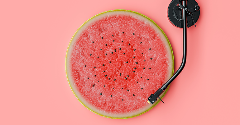News
Unilever gets EFSA approval for tea claim
29 Jun 2018Unilever has announced that the European Food Safety Authority (EFSA) has issued a positive opinion on the company’s evidence that black tea improves attention.

Unilever has announced that the European Food Safety Authority (EFSA) has issued a positive opinion on the company’s evidence that black tea improves attention. This is said to make Unilever the first company in the EU to receive a positive scientific opinion on a health claim for tea from the EFSA.
Dr Amelia Jarman, R&D Director and lead scientist at Unilever said: “Some initial evidence suggested that black tea could improve attention, which is the ability to concentrate on, filter and utilise incoming sensory information. So, we set out to generate the scientific evidence to confirm this.”Working with external academic experts, Unilever ran three human intervention studies in which volunteers drank two to three servings of either black tea or coloured and tea-flavoured water on separate occasions. The volunteers undertook a series of tasks to measure attention before and after each serving. Participants were tested on both the accuracy and speed of their responses. The results consistently showed that after drinking black tea, the attention scores were higher. One of the studies, which is proprietary, demonstrated that the stronger the tea, the higher the attention scores.Clive Gristwood, Executive Vice President R&D Foods & Refreshment at Unilever, said: “It is very valuable for us to have this official positive scientific opinion from the European Food Safety Authority. We are pleased to be one of the few companies to achieve this and we consider it a reward for our long years of extensive research in the benefits associated with drinking tea.”The EFSA published its public opinion that “owing to its caffeine content, black tea improves attention”, on 24 May 2018, which was followed by a 30-day period of consultation.The European Commission will now review the EFSA opinion. If the application is granted, Unilever will have exclusive rights to use this health claim for a period of five years.Related news

Retail landscape lacks nutritious and affordable food, says ATNi
30 Dec 2025
A rapid increase in modern food retail has given retailers growing influence over consumer diets, according to global non-profit ATNi’s latest assessment.
Read more
Debate over ban on ‘meaty’ names for plant-based products reaches stalemate
26 Dec 2025
The debate over a ban on plant-based products using “meaty” terms has reached a stalemate, leaving manufacturers in limbo and still facing overhauls to their marketing and packaging.
Read more
Multi-sensory food and drink products to gain traction in 2026
16 Dec 2025
Trend forecasters predict that sensory elements will play a larger role, helping food and beverage brands differentiate themselves in a competitive market in 2026.
Read more
Big appetite for M&A between European and US food and drink companies
3 Dec 2025
Persistent tariffs on EU food and beverage exports have helped drive record levels of M&A activity between European and US companies this year, according to analysis by ING.
Read more
Non-UPF Program extends certification scheme to entire food industry
30 Nov 2025
The Non-UPF Program has extended its certification scheme to the wider food sector, championing a move towards healthier consumption habits.
Read more
Lancet study links UPFs to chronic disease risk
26 Nov 2025
UPFs are consistently associated with an increased risk of diet-related chronic diseases, according to a comprehensive review of global evidence in The Lancet .
Read more
Concerns swirl around cinnamon’s compliance with EU law
25 Nov 2025
Cinnamon may be a top functional ingredient, but it needs stronger protocols to ensure it meets EU food safety laws and quality standards, say researchers.
Read more
Oat Barista: Innovation for game-changing beverages
20 Nov 2025
Oat Barista is a clean label, sustainable, and innovative drink base specifically designed to create the perfect foam in one single ingredient.
Read more
How younger consumers are redefining ingredient choices and rejecting brand loyalty
18 Nov 2025
Gen Z and millennial consumers’ preferences for transparency, functionality, and purpose are “redefining the very nature of consumption itself”, says SPINS.
Read more
Hybrid formats and flexible positioning to disrupt category norms in 2026
17 Nov 2025
Trend forecasters expect food and drink to move more fluidly across occasions, functions, and formats as consumers seek versatility, novelty, and convenience.
Read more